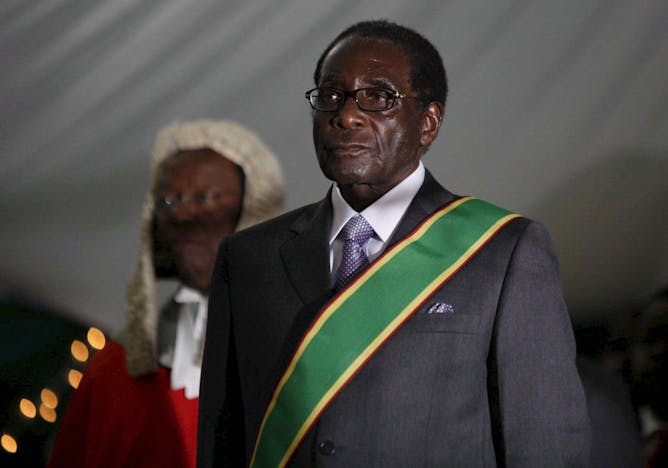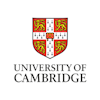|
|
|
Editor's note
|
|
Cold isn’t it? Or at least it’s definitely quite autumnal here in Cambridgeshire, so forgive me if you are reading this in sunnier climes. Frankly I’m more than a little envious. The unseasonably low temperatures this week have had the local climate change sceptics chuckling into their beers; not only does it appear to be proof that global warming is a scare campaign, but it enables them to have a bit of a laugh at the “greenies” in our village who have installed solar panels on their roofs.
And, to be fair, solar energy will not be the panacea that some are hoping. In fact, the idea that somehow new technology will be the saviour, allowing us to carry on with our globalised lives – “ecomodernism” as it is sometimes called – is altogether flawed. For the latest in our in-depth Insights series, professor of human ecology Alf Hornborg argues that the idea that we can somehow solve the climate crisis by simply swapping technologies is
naive. Walking us back beyond the industrial revolution, Hornborg believes that technology has always depended on and responded to the power of capital and global relations of exchange, and that globalisation has simply exacerbated this. So it’s not simply a question
of swapping “old, dirty” tech for “new, clean” tech, but of rethinking the entire economic system: new technology alone cannot be sustainable in a globalised world.
This week we’ve rightly devoted a great deal of time and energy to trying to understand what is happening in UK politics. But fear not, this newsletter will be a Brexit-free zone. But do read on if you want to find out how to build a new language, what being vegan can tell others about you and, for fans of Strictly Come Dancing, why the order in which people perform on talent shows matters. From our colleagues around the world, we have a reaction to the death of Robert Mugabe, how climate change is driving emigration from Central America and New Zealand’s plans to revive the health of its lakes and rivers.
If you’re a fan of true crime, then join us for a special screening for Conversation readers of an episode of CBS Reality’s new documentary, The Real Prime Suspect. Presented by former Scotland Yard detective Jackie Malton (the inspiration for Helen Mirren’s character in the award-winning series Prime Suspect), the episode delves into the case of the Saturday Night Strangler, Wales’ first documented serial killer, and how the 30-year-old cold case was finally solved. The screening will be held in London next Wednesday September 18, followed by a Q&A with criminologist Fiona Brookman, forensic scientist Martin Evison, and Malton herself. Find out how you can get your hands on
a pair of tickets
here.
|
Jonathan Este
Associate Editor, Arts + Culture Editor
|

|
|
|
|

Valentin Valkov/Shutterstock.com
Alf Hornborg, Lund University
The design of the global money game is the real antagonist in the fight against climate change. But the call to arms tends to be directed at the players who have had best luck with the dice.
|

A document in Tengwar, the script of the Elvish languages invented by JRR Tolkien, Dozza, Italy.
Luca Lorenzelli via Shutterstock
Bettina Beinhoff, Anglia Ruskin University
From Lord of the Rings to Game of Thrones, writers and linguists have invented an array of new languages.
|

Are you who you eat?
Photographee.eu/Shutterstock
Thomas Robinson, City, University of London; Outi Lundahl, University of Groningen
Following a vegan lifestyle isn't always easy. Navigating its burdens can signal a new you.
|

Who goes first: the 2019 Strictly Come Dancing line-up.
BBC Pictures
Leighton Vaughan Williams, Nottingham Trent University
A close look at 15 years of the popular dance competition shows that people dancing last have a distinct advantage.
|

Robert Mugabe during his swearing-in ceremony in Harare, 2008. The former Zimbabwean president has died aged 95.
EPA-EFE
Roger Southall, University of the Witwatersrand
Where should we place Mugabe among the pantheon of African nationalists who led their countries to independence?
|
|
|
-
Miranda Cady Hallett, University of Dayton
Poverty and violence are often cited as the reasons people emigrate from Central America, but factors such as drought, exacerbated by climate change, are driving people to leave too.
-
Troy Baisden, University of Waikato
A proposed plan to clean up New Zealand's waterways draws clear limits on the expansion of dairy farming and irrigation, as well as on the use of nitrogen fertiliser in some key areas.
-
Camila Silva, Lancaster University
The Amazon will take a lifetime to recover from this year's fires – if it ever does.
-
Angel Urbina-Garcia, University of Hull
In Nordic and Latin American countries, education systems promote well-being and resilience. The UK still has a lot to learn.
-
Christine Roffe, Keele University
Habitual neck poppers may want to curb their habit.
-
Joy Porter, University of Hull
The Hollywood actor's controversial role in a perfume ad has drawn criticism for 'cultural appropriation'. But it's not as simple as that.
|
|
| |
Featured events
|

|
Berrill Lecture Theatre The Open University Walton Hall, Milton Keynes, Buckinghamshire, MK7 6AA, United Kingdom of Great Britain and Northern Ireland — The Open University
|

|
Here East, Queen Elizabeth Park, London, London, City of, E15 2GW, United Kingdom of Great Britain and Northern Ireland — UCL
|

|
Cambridge Judge Business School, Trumpington Street, Cambridge, Cambridgeshire, CB2 1AG, United Kingdom of Great Britain and Northern Ireland — University of Cambridge
|
|
|
|
| |
| |
| |
| |
| |
|
|
|
|
|
|
|